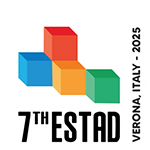Speaker
Description
This paper presents a pioneering approach by SMS group, focusing on the integration of advanced thermal dry reforming technology into existing blast furnace infrastructures. The scope of this study is to explore the potential of Paul Wurth's thermal dry reforming process in reducing CO2 emissions while leveraging current coke oven plants. This innovative technology introduces a novel method to the industry by generating hot syngas at temperatures exceeding 1300°C. The syngas, characterized by its chemical composition, is optimized for injection into blast furnaces, thereby reducing the coke consumption rate.
The results discussed in this paper are derived from pilot plant tests conducted at a coke oven facility. These tests have demonstrated the feasibility of producing syngas suitable for blast furnace operations. The study is currently at the pilot stage, with plans for partial implementation in select integrated plants. The findings indicate significant potential for CO2 emission reduction and increased productivity within blast furnace operations.
The anticipated benefits of retrofitting this technology into existing BF-based integrated plants are substantial. By incorporating this method into the decarbonization roadmap, plants can achieve a marked decrease in carbon emissions, contributing to a more sustainable steel production process. The paper will detail the results obtained thus far and outline the expected future outcomes, emphasizing the role of this technology in the industry's transition towards greener practices.
In conclusion, this study highlights a crucial step in the decarbonization of steel production, offering a cost-effective solution that aligns with global sustainability goals.
